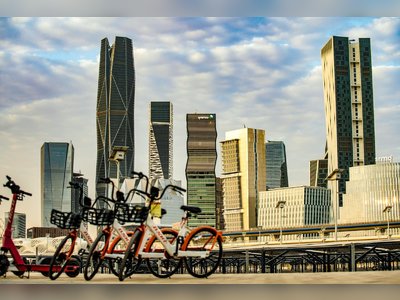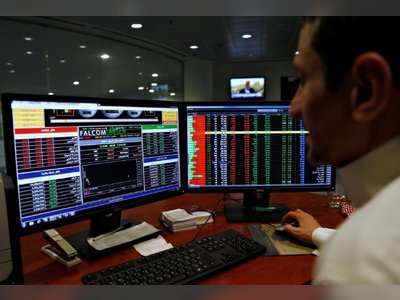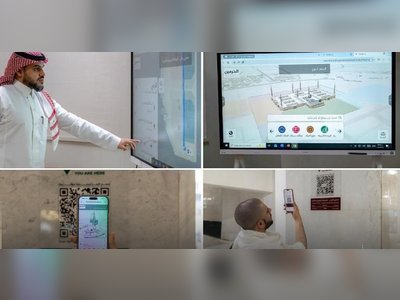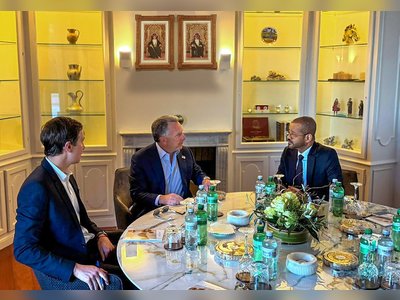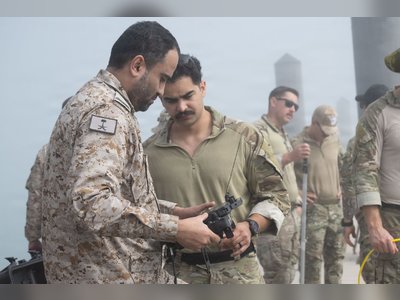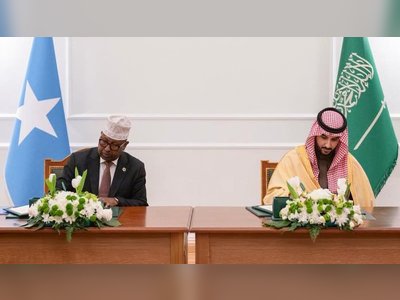0:00
0:00
The Solo Ramadan Experience: Navigating Fasting Alone
Exploring the challenges and personal growth of individuals observing Ramadan in solitude.
As Ramadan unfolds, a period traditionally associated with community and family in the Muslim world, many individuals find themselves navigating the holy month in solitude.
The dynamics of observing Ramadan alone present both unique challenges and new avenues for spiritual introspection among young Muslims.
Laila Al-Ghamdi highlights the emotional difficulty of celebrating Ramadan without loved ones, stating, "It’s the lack of affinity triggered by feelings of solitude.
Shared moments of fasting, breaking fast with family, and communal prayers create a profound emotional connection that is difficult to replicate when alone." Similarly, Roaa Magdy emphasizes the emotional strain during this time, noting that, "Missing my family, especially as an Arab, is particularly challenging.
Seeing advertisements of family gatherings amplifies my sense of isolation."
Layan Al-Shamari shares that the absence of a communal framework complicates maintaining a routine during Ramadan, "Sticking to a schedule for sleep, food, and work has been challenging along with a heightened sense of loneliness due to the lack of shared meals."
Despite these trials, some individuals find an enhanced spiritual experience in solitude.
Magdy reflects on this aspect, saying, "Practicing spirituality during Ramadan feels more personal and peaceful when I'm alone, allowing more time for prayer and introspection." Al-Ghamdi, conversely, seeks out social interactions, stating that the cultural vibrancy of Ramadan can be felt even outside the familiar environment, as cities like Jeddah come alive with decoration and shared meals.
The experience of breaking fast alone is particularly poignant.
Magdy describes the struggle of seeing others enjoy meals in company, stating, "The hardest part is having iftar alone.
Witnessing families together can intensify loneliness, prompting me to reach out via video calls to feel a sense of connection."
Al-Ghamdi finds practicality in food delivery services, stating, "I do cook when my schedule allows, but I’m thankful for the convenience of services like HungerStation." Al-Shamari prefers a simpler approach to meals, typically breaking her fast with water and maintaining functional eating habits through the evening.
In an age of digital interconnectedness, social media plays a crucial role in bridging the gap of isolation.
Al-Ghamdi remarks, "Social media becomes a friend when living alone; it offers glimpses of others’ celebrations and moments, fostering a sense of community even from a distance." Magdy adds that virtual connections allow her to feel included despite physical separation from family.
For some, social media serves as a comfort but also a source of mixed emotions.
Al-Shamari mentions that while it helps her experience the spirit of Ramadan, it can also evoke sadness when comparing her experiences to those of others celebrating with families.
Each individual's journey through solo Ramadan reveals a spectrum of perspectives.
Al-Ghamdi, reflecting on her personal growth, states, "I have come to appreciate solitude and the room for reflection it brings, enhancing my understanding of Ramadan’s sacredness."
Meanwhile, Magdy acknowledges a shift in her appreciation of the month, stating, "Spending Ramadan alone has prompted me to focus on the spiritual essence, emphasizing prayer and self-reflection over social activities."
Al-Shamari expresses a contrasting sentiment, stating, "I feel more anxious about Ramadan, as I often compare my solitude to the joy others experience with their families."
The experience of solo Ramadan thus encapsulates a journey of personal adaptation, spiritual growth, and increased introspection, navigating the challenges of loneliness while exploring new dimensions of faith.
The dynamics of observing Ramadan alone present both unique challenges and new avenues for spiritual introspection among young Muslims.
Laila Al-Ghamdi highlights the emotional difficulty of celebrating Ramadan without loved ones, stating, "It’s the lack of affinity triggered by feelings of solitude.
Shared moments of fasting, breaking fast with family, and communal prayers create a profound emotional connection that is difficult to replicate when alone." Similarly, Roaa Magdy emphasizes the emotional strain during this time, noting that, "Missing my family, especially as an Arab, is particularly challenging.
Seeing advertisements of family gatherings amplifies my sense of isolation."
Layan Al-Shamari shares that the absence of a communal framework complicates maintaining a routine during Ramadan, "Sticking to a schedule for sleep, food, and work has been challenging along with a heightened sense of loneliness due to the lack of shared meals."
Despite these trials, some individuals find an enhanced spiritual experience in solitude.
Magdy reflects on this aspect, saying, "Practicing spirituality during Ramadan feels more personal and peaceful when I'm alone, allowing more time for prayer and introspection." Al-Ghamdi, conversely, seeks out social interactions, stating that the cultural vibrancy of Ramadan can be felt even outside the familiar environment, as cities like Jeddah come alive with decoration and shared meals.
The experience of breaking fast alone is particularly poignant.
Magdy describes the struggle of seeing others enjoy meals in company, stating, "The hardest part is having iftar alone.
Witnessing families together can intensify loneliness, prompting me to reach out via video calls to feel a sense of connection."
Al-Ghamdi finds practicality in food delivery services, stating, "I do cook when my schedule allows, but I’m thankful for the convenience of services like HungerStation." Al-Shamari prefers a simpler approach to meals, typically breaking her fast with water and maintaining functional eating habits through the evening.
In an age of digital interconnectedness, social media plays a crucial role in bridging the gap of isolation.
Al-Ghamdi remarks, "Social media becomes a friend when living alone; it offers glimpses of others’ celebrations and moments, fostering a sense of community even from a distance." Magdy adds that virtual connections allow her to feel included despite physical separation from family.
For some, social media serves as a comfort but also a source of mixed emotions.
Al-Shamari mentions that while it helps her experience the spirit of Ramadan, it can also evoke sadness when comparing her experiences to those of others celebrating with families.
Each individual's journey through solo Ramadan reveals a spectrum of perspectives.
Al-Ghamdi, reflecting on her personal growth, states, "I have come to appreciate solitude and the room for reflection it brings, enhancing my understanding of Ramadan’s sacredness."
Meanwhile, Magdy acknowledges a shift in her appreciation of the month, stating, "Spending Ramadan alone has prompted me to focus on the spiritual essence, emphasizing prayer and self-reflection over social activities."
Al-Shamari expresses a contrasting sentiment, stating, "I feel more anxious about Ramadan, as I often compare my solitude to the joy others experience with their families."
The experience of solo Ramadan thus encapsulates a journey of personal adaptation, spiritual growth, and increased introspection, navigating the challenges of loneliness while exploring new dimensions of faith.


